In the Asia-Pacific region, India behaves in a mutually beneficial manner. Kathmandu needs to do a field study of Indian affairs. Nepal needs to have a deeper discussion and synthesis of Indian mentality and thinking compared to China. Diplomatic history has shown that the Nepali people’s perception of Nepal-India relations does not take long to become fluid. Diplomatic injuries, conflicts, and risks are serious.
Geopolitics is a policy influenced by geography. Geopolitics is the activity of formulating, implementing, and regulating policy that addresses determinants of geography when approaching, articulating, and choosing public and international policy. Geography is a sensitive subject matter. That is why the possibility of war, conflict, and belligerency becomes inevitable upon neglecting it. It rings alarm bells to prevail upon anarchy. The state’s existence raises questions. So geopolitics is a complex subject. It presents a strong argument for creating perceptions, concepts, and misunderstandings. Diplomacy is the art and science of managing positive and negative aspects of geopolitics. And, foreign policy framework guides it.
Nepal’s geopolitics is expensive and precious. Nepal is a small area. However, Nepal’s diplomatic importance has increased exponentially. Nepal is ready for the opening world scenario. But, unpleasant degenerative or decaying factors are becoming challenging. Discourse on foreign policy has been going on within the modern state-nation system due to the geopolitics about the integration campaign and unification project of Nepal since 1768. On the other hand, Hindu pilgrims believe the Himalayas is a playground of the gods and goddesses. This makes the rivalry of titans apparent.
The big players in the contemporary world want to involve Nepal in activities as if in a strategic battlefield. Additionally, those actors also urge Nepal to express a clear political ideology in international politics. With the end of the ‘Ranacracy’ in 1947, annals of political exercise in Nepal’s sovereignty started with open and behind-the-scenes manoeuvres on the battlefield. During the Cold War era and after the 1990s, geopolitical pressures, tensions and anxiety fed the foreign policy of Nepal. What underpins Nepal to devise a strategy for securing principles of sovereignty and self-respect? What is the minimum understanding to handle the state’s pillars here? Due to political instability and extreme politicization, the political seasons would become tense in all weather conditions. There are only instances of loud voices and slogans being raised against foreign intervention. The geopolitical challenge of managing policy has also become controversial. There are invisible foes inside and outside Nepal when protecting the reputation, dignity, and eternal life of the state. Chanakya propounded a policy that the eighth organ of the state is about the management of hostile elements. Who is this unknown enemy then?
Also Read: Nepal: Politics of American Initiative of MCC
It is the responsibility of the factions to carry out an in-depth analysis of attempts to create a rift in the implementation of the policy and, thus, not to disturb the executive action of the officials who maintain good governance and any good initiative of the democratic government. These elements are also the enemies of sovereign Nepalese. Such inimical elements weaken the soft power of Nepal in the short, medium, and long term. Future generations will surely debate on the search for the idea of Nepal in globalizing era and they would take a stand on public and international affairs. An open society has not given up hope of reviving the national perspective on many issues. But, it is to be practised in the framework of democratic values along with its linkage of soft power. Humanities, sociology, natural sciences, local knowledge and indigenous technical solutions, sports, cultural capital, and cooking are also invaluable treasures of Nepal’s independent existence.
Some of these arguments show the changing geopolitical turmoil in the Indian subcontinent, which is considered as India’s sphere of influence in the shadow of confrontation between the US and Chinese leadership. Experts in this field of international relations express ups and downs in geopolitical activities. The Indo-Pacific strategy, the foreign policy of the US initiative based in Asia, the ancient Silk Road in China’s governing strategy, and India’s seasonal spice trade network could currently affect and influence domestic politics. Nepal should not delay in exploiting these geopolitical conflicts, trends, and shifts through trade, commerce, and investment. At the same time, it is necessary to provide services at a fast pace of public policy implementation. While increasing the social and human capital of Nepal, the determination to practice the Panchsheel or five pillar principle should be characterized by multi-faceted activism in the current non-aligned policy.
Also Read: Nepal’s Common Minimum Program: A Coalition of Governing Principles
Nepal has suffered since 1990 and seriously commences to address self-respecting employment, income-generating investment, and the practical transformation of a weak economy dependent on remittances. It does not distort the course of history in time and space. Instead, it is to strengthen the state and society of Nepal and liberal democracy, human security, and welfare policy by making good efforts and noble initiatives. Nepal needs to take immediate steps to leap into a green economy.
Positive politics and skilful diplomacy are indispensable for writing the current history of Nepal in golden letters. In a book entitled Positive India, Chetan Bhagat insists that political communication and political education in India should be practised as good civic sense and pragmatic political art. He acknowledges the need to upgrade the art and science of the state apparatus. It is the summoning in the time of anger if one imitates “Bahujan Hitaya, Sarvajana Hitaya” – the majority of interests are everybody’s interests. This is the approach to emulate the welfare of all in patriotism, hard work, and diligence.
The US, Russia, India, and China have large embassies in South Asia in Kathmandu. The United Kingdom, the United States, and France were among the first group of countries signing for diplomatic relations. Nepal’s diplomatic map is at the centre of world affairs. By 2021, global political tremors were being felt in Nepal’s strategic arena. It seems necessary to harmonize the criteria for receiving economic, financial, and technical assistance for the promotion of close diplomatic rapport. Aid reports speak of receiving support and partnership from such bilateral and multilateral agencies in the past. As a result, it is important to evaluate and support substantive differences.
Controversy over MCC in the Federal Parliament of Nepal demands to discern and ascertain the onus of the future consequences of this approval or the diplomatic manoeuvring about the intent to endanger the changing strategic concerns? Should we emphasize grants or self-esteem-based capital generation? Is it necessary to create an environment to attract foreign investment in Nepal to increase employment opportunities or to grapple with its pathology? It’s time to dump such policy overtures and start-ups to enhance the quality of prosperity. Politicians holding the post of foreign minister uphold to ensure mutual benefits from the business partnerships of the United States and its allies, eliminate unnecessary geopolitical adventures and complement Nepal’s growth of independence and mutual equality in partnership for economic prosperity.
It is a request to maintain the unique political image of Nepal according to the principle of Panchsheel or a five-pillar policy. The US authority for the Indo-Pacific Strategy, including the Quad or Fourth Coalition, has stormed, formed and normed. It is accused of controlling the resurgence of the communist version of China. The Quad is considered a strategic goal and vision to promote democratic peace. The United States and India are in favour of a democratic system of mutual political nature. In the Asia-Pacific region, India behaves in a mutually beneficial manner. Kathmandu needs to do a field study of Indian affairs. Nepal needs to have a deeper discussion and synthesis of Indian mentality and thinking compared to China. Diplomatic history has shown that the Nepali people’s perception of Nepal-India relations does not take long to become fluid. Diplomatic injuries, conflicts, and risks are serious.
Also Read: End of Oli Era: A New Start for Indo-Nepal Relations
The Indo-Nepal-China Axis
Is Nepal a contiguous landlocked or India-locked or a land-linked neighbour? Nepal is a unit of the international community. Nepal cannot remain untouched by the wave of world power politics. The comment that Nepal is a buffer state is also an improper classification like contempt. The concept of Nepal is unique. It’s a waste of time and arguing in vain that Nepal is under any power or taking a security umbrella. The fear of ‘Sikkimization’ or ‘Bhutanization’ is also a useless terror. Nepal’s ability and identity have been unique and original since time immemorial. Nepal unification campaign or formulation of unity project is not over. That journey continues. In the 21st century, Nepalese can breathe a sigh of relief to be proud to be independent citizens of an independent nation, no matter what the circumstances, events, or accidents the history undergoes. Resolving to move forward in the time cycle by addressing appropriate criticism or feedback, democracy has been restored more than fifth time since 1950.
India strives to maintain strategic autonomy in international relations. India will not back down from its stance on foreign policy. India’s neighbours have the potential and limitations of policy first. Apart from India and China, the regional powers in South Asia are also active in one way or another. Even if it looks like India’s sphere of influence, the pressure it exerts or its dominance may not be acceptable. There is a policy provision that only the neighbours can enter the agenda of the Panchsheel Doctrine, the Non-Aligned Movement, the Charter of the United Nations, and the list of non-political concerns of SAARC.
India is a huge democracy. China is the capitalist state of the unitary communist party. Democracy in India is a long-tested political system. It is a rare non-western democracy. India’s policy in world affairs is clear. India’s security interests (terrorism) and the search for energy and markets to maintain economic prosperity are also clearly in India’s national interest. In the context of the principled position, India’s motto of enlightened national interests has been uttered from time to time since the time of Nehru. Shyam Sharan, Shivshankar Menon, and Dr. S. Jaishankar have communicated public opinion on the objectivity of the subject matter derived from experience in managing and administering foreign policy that is revealed in their articles and books.
The founding party of India has a sense of governance and administration in the face of the urgency and contingency that human nature invites. They do give importance to ‘isms’ and not imaginative fiction. From a factual and pragmatic point of view, the philosophy of Indian civilization is safe in their mind. The Asian power, India, is the epitome of an ancient civilization that is emerging in world politics. It is a shame and a disgrace to bear the burden of foreign rule in Indian history for hundreds of years. This is also the fact that China’s history has not been pleasant. The term “peripheral” or “marginal diplomacy” currently used by China is a radical international economic and political concept. This is synonymous with accusations against the West pointing to the cyclical system of global capitalism.
India prefers equality rather than diplomacy. The policy of providing non-reciprocal benefits to the neighbours for their interests was also revealed in the past. Atal Bihari Vajpayee’s beneficial bilateral relations and Inder Kumar Gujral’s non-reciprocal policy are examples of this. While the United States is committed to the Asia Pivot, India is independent in this strategic camp. India’s power politics is an ideological expression made by the BJP. It is not possible to be sure that whether India has compromised its sovereignty in the Civil Nuclear Deal with the United States or has the deal brought them closer. Similarly, diplomatic relations between India and China are strained due to multiple factors. But the volume of commerce, trade, and business has widened. It is natural for both the ancient civilizations and the states to get involved and to try to openly join the beneficial range of its activities. International politics is attracted to this aspect.
China’s massive economic density and phoenix-like energy have caused concerns to many of its predatory behaviour. In the West, the world regrets the communist regime’s strategy of making economic leaps without personal freedom. India-China relations seem to be a mixture of enemy and friend. Competitive and cooperative policies seem to be the norm. India’s concern is not Pakistan’s strategic threat. From the 1962 war with China, India focused on the attitude of the northern neighbour. India has missed out on the recent AUKUS Pact of Australia, the United Kingdom, and the United States. India does not have an active and deep involvement in military activities indirectly with the West. India does not want to add unnecessary concerns to China and its neighbors. India is also introverted because of the challenge of managing its public and international affairs. Thoughts of serious implementation of responsibility policy are shaken. Its preparation is summed up only by arranging internal affairs.
The geopolitical complexity of India and China’s policy is paradoxical. Influence, pressure, and impact are not new issues in Nepal and other small countries. All countries are closest in strategic world affairs. The process of integrating transport, communication, and technology into social, cultural, economic, and political networks is faster in connection. This is the automatic and spontaneous consequence of a quickening pace of globalization.
Nepalese government and diplomats depend on timely combating repercussions of geopolitics on Nepal’s domestic affairs. Somewhere in the state, political, national, and civil society wherein policymakers and decision-makers are involved in such interrelationships, boundaries, and bridges can pursue objective policy advocacy? In the wake of geopolitics, Foreign Affairs Office and Outposts should be able to give a concrete answer to this question of a challenge to internal and external sovereignty. It is to advance good deeds and persistent endeavours to solve the geopolitical puzzle.
Disclaimer: The views expressed in this article are of the author solely. TheRise.co.in neither endorses nor is responsible for them.
About the author
Mr. Kunwar is a politics and international relations analyst based in Kathmandu.

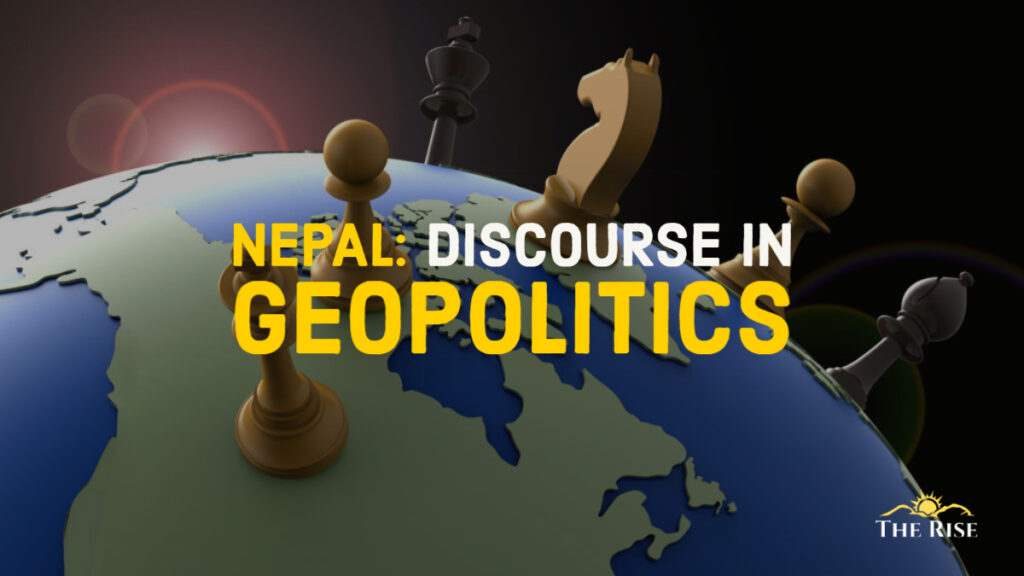

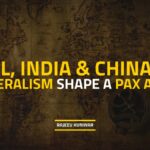
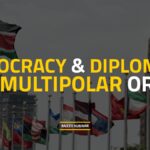

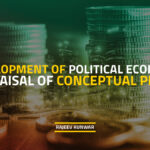


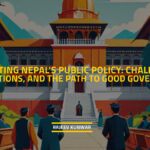
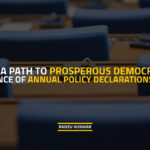

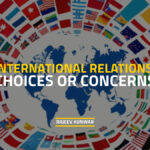




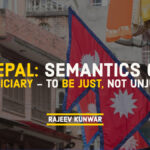
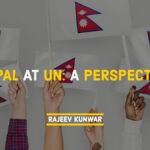
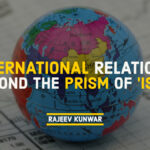
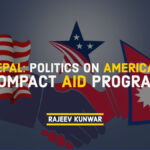

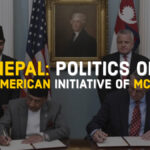
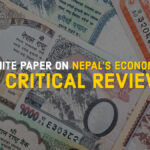
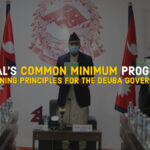
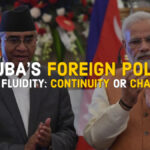
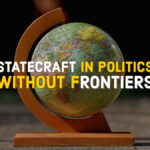
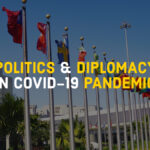
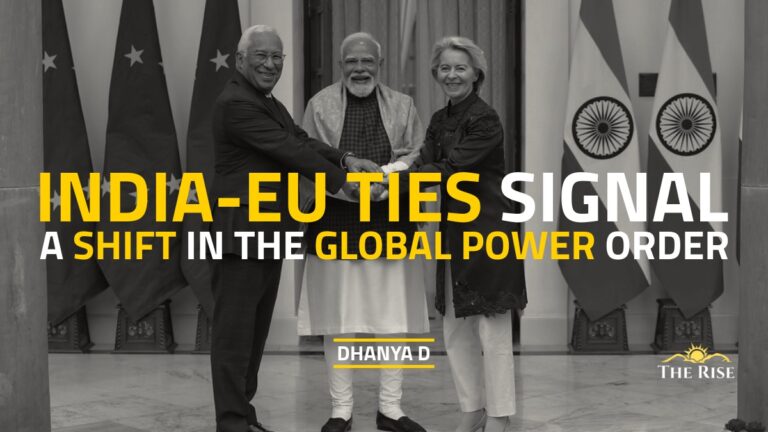
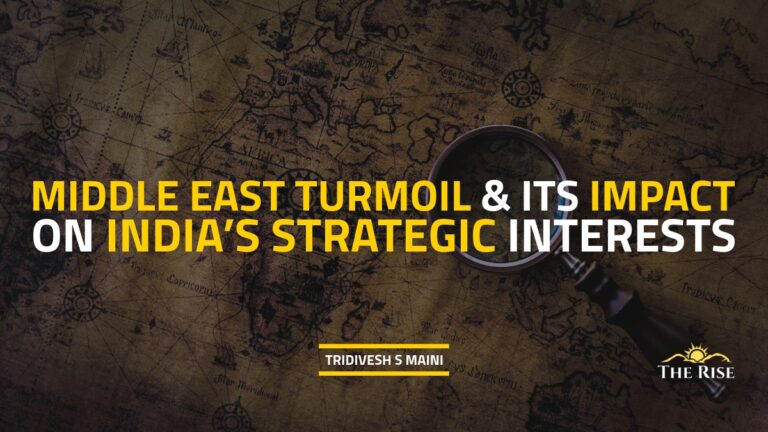
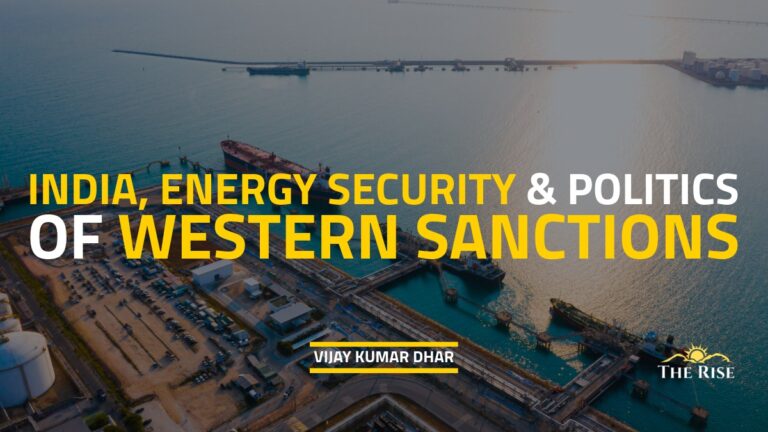

Pingback: Politics on American Aid to Nepal - TheRise.co.in